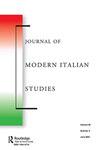“心灵联盟”?法西斯意大利对国际联盟国际主义的利用和滥用
IF 0.7
3区 历史学
Q1 HISTORY
引用次数: 0
摘要
摘要本文旨在阐明法西斯意大利加入国际联盟文化组织的理由,以及它在20世纪20年代和30年代为制定知识合作议程而采取的战略和外交工具。尽管受到强烈的民族主义意识形态的启发,法西斯政权至少在最初成功地将其文化外交战略适应了联合国的多边背景,接受了国际主义的语言和工具。然而,从长远来看,民族主义和国际主义态度之间的微妙平衡被证明是站不住脚的:墨索里尼旨在向外界传达积极宽容的法西斯主义形象的项目首先受到1931年意大利知识分子团结措施的影响,然后最终随着对埃塞俄比亚的侵略而崩溃。然而,这篇文章表明,参与联合国的文化组织,在为法西斯主义提供国际宣传渠道的同时,也决定了真正合作的例子:最具象征意义的例子是电影摄影的发展,这可以被认为是意大利在两次世界大战期间对加强联合国内部智力合作的长期贡献。本文章由计算机程序翻译,如有差异,请以英文原文为准。
‘A League of Minds’? Uses and abuses of the League of Nations’ internationalism by Fascist Italy
ABSTRACT This article aims to shed light on the rationale behind Fascist Italy’s participation in the League of Nations’ (L.o.N.) cultural organizations, as well as on the strategies and diplomatic tools it adopted with a view to setting the intellectual cooperation agenda in the 1920s and 1930s. Although inspired by a strong nationalist ideology, the Fascist regime, at least initially, successfully adapted its cultural diplomacy strategies to the multilateral context of the L.o.N., embracing the language and tools of internationalism. In the long run, however, this delicate balance between nationalist and internationalist attitudes proved untenable: Mussolini’ project aiming to convey a positive and tolerant image of Fascism to the outside world was firstly tainted by the measures taken in 1931 to regiment Italian intellectuals, and then finally collapsed with the aggression to Ethiopia. However, this article shows that the involvement in the L.o.N.’s cultural organizations, while providing Fascism with international channels for circulating its propaganda, also determined instances of real cooperation: the most emblematic case is represented by the development of cinematography, which can be considered Italy’s long-term contribution to the enhancement of intellectual cooperation within the L.o.N. in the interwar period.
求助全文
通过发布文献求助,成功后即可免费获取论文全文。
去求助
来源期刊

Journal of Modern Italian Studies
Multiple-
CiteScore
1.00
自引率
25.00%
发文量
66
期刊介绍:
The Journal of Modern Italian Studies (JMIS) is the leading English language forum for debate and discussion on modern Italy. This peer-reviewed journal publishes five issues a year, each containing scholarly articles, book reviews and review essays relating to the political, economic, cultural, and social history of modern Italy from 1700 to the present. Many issues are thematically organized and the JMIS is especially committed to promoting the study of modern and contemporary Italy in international and comparative contexts. As well as specialists and researchers, the JMIS addresses teachers, educators and all those with an interest in contemporary Italy and its history.
 求助内容:
求助内容: 应助结果提醒方式:
应助结果提醒方式:


